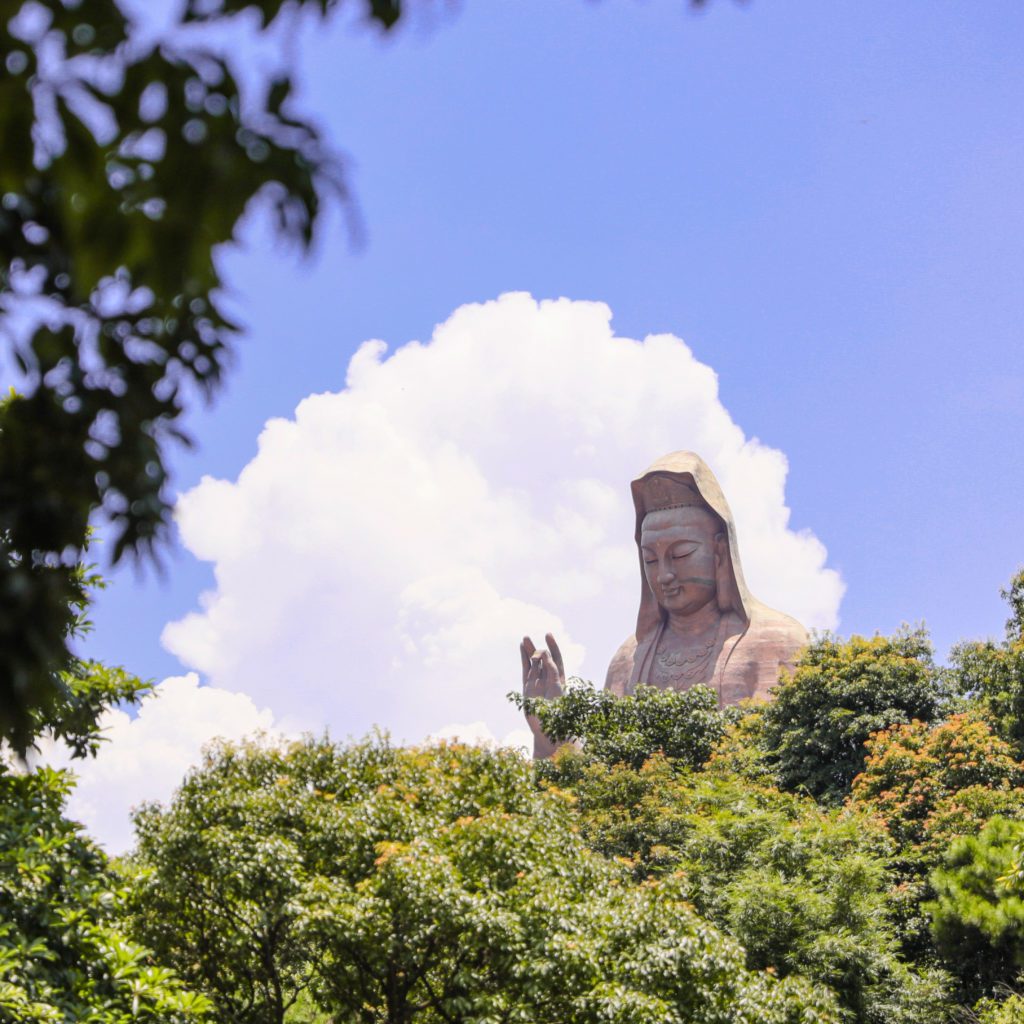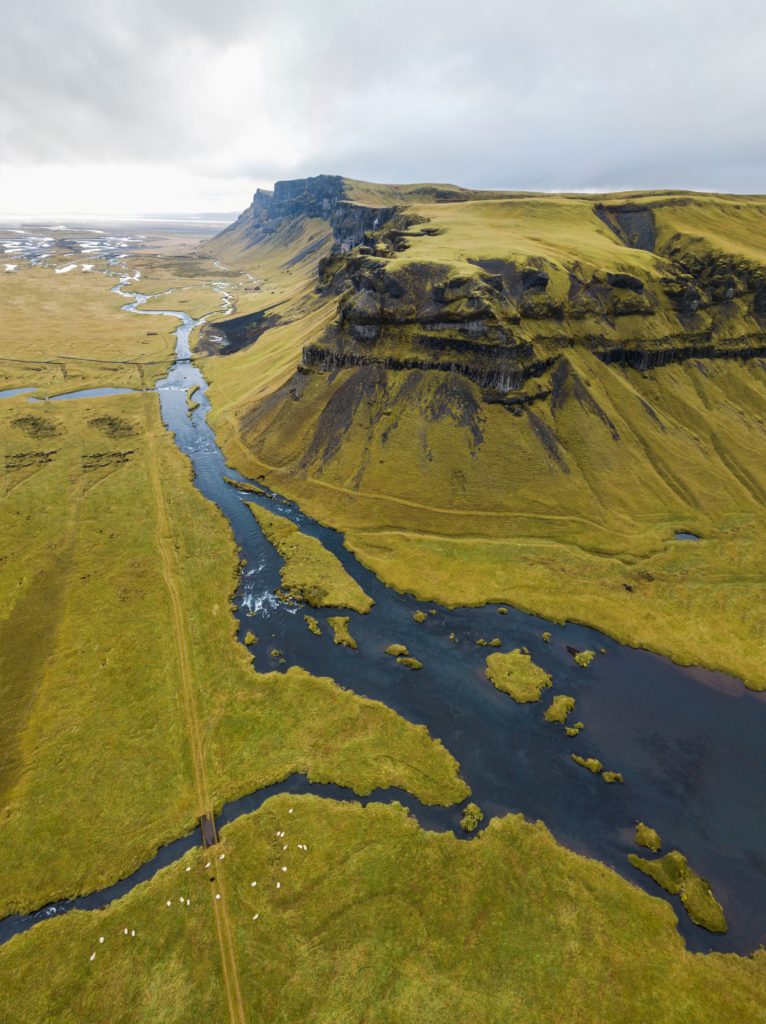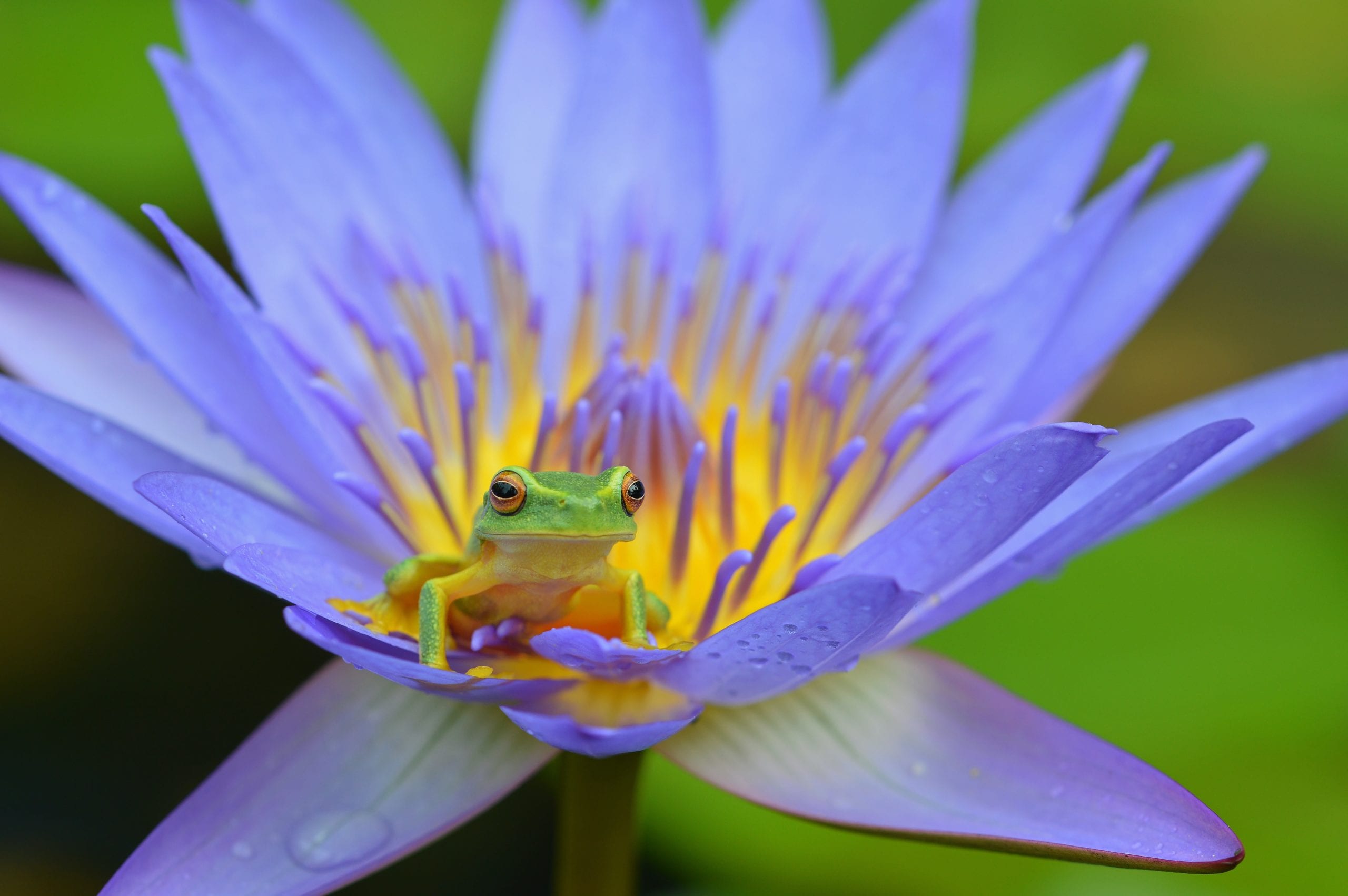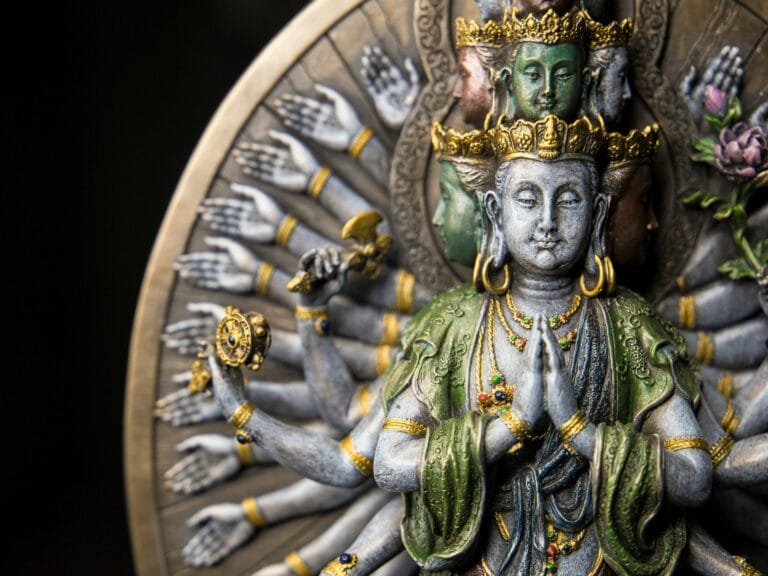One way to understand the Mission of One Earth Sangha, our organizational agenda, is that we exist to collectively discover, develop, and share EcoDharma. This Dharma is focused on repairing humanity’s relationship not just with ourselves and one another, but with Earth and the living Earth community. In this space, we bow in gratitude to those who have developed EcoDharma so far, whether by that name or otherwise, including authors and teachers, such as Thích Nhất Hạnh, Stephanie Kaza, Joanna Macy, David Loy, Robin Wall Kimmerer, bell hooks, Dr. Michael Yellow Bird, Gary Snyder, Enrique Salmon, Robert Aitken Rōshi, and so many more.
To begin, look to the word itself: EcoDharma integrates Eco and Dharma. Dharma is BuddhaDharma, the exquisite and evolving wisdom tradition founded in the sixth century B.C.E. by Siddhartha Gautama. And “Eco” refers to “ecology,” a study of the activity of relationships in nature that evolve over time and how they impact the health of both individuals and the system as a whole.

Yet there is much more to it than that. At One Earth Sangha, here are nine principles that characterize our understanding of EcoDharma:
- BuddhaDharma as Foundation
As a premise, EcoDharma is rooted in Dharma. Dharma wisdom and practices, as interpreted and enhanced across traditions and generations, are fundamental to EcoDharma. The practices of turning towards, instead of away from, suffering, seeing conditioning as conditioning, understanding the Middle Way as the stuff of insight and not a compromise between extremes, curtailing reactivity, training in ethical speech and action, cultivating compassion and the other heart practices, recognizing interdependence, understanding emptiness … these are only some of the critical insights that explicitly inform our EcoDharma.Indeed, we submit that the potential of the Dharma to understand our present conditions, and then inspire and guide our response, is woefully unexplored and largely untapped. Not only can our response to eco-social crises benefit in countless ways from the Dharma but eco-social crises themselves reveal the Dharma. If we look closely and with this lens, they teach the Dharma. - Recognizing and Turning Towards Climate Trauma
Given the dramatic losses in global ecological health and our inseparability from that reality, EcoDharma recognizes the profound threats to not only our physical but our psychological well-being. Yet EcoDharma’s response goes far beyond “treating eco-distress” of individuals as this emotional overwhelm challenges not only individuals but communities and cultures at all scales. Indeed, humanity as a whole has thus far been unable to face the collective emotional challenge, turn towards the suffering of ecological crises, and curtail their causes. As part of turning away (through denial, disavow, diminish, and distract), humanity writ large accelerates its impacts which only causes more stress and overwhelm.EcoDharma recognizes this meta feedback loop between dominant human culture and the geophysical limits of Earth’s life-giving systems. Similar to our individual experience of inner conflict and reactivity, the loop can only be broken with the ability to turn toward and skillfully respond with insight, courage, and compassion. - Inseparability
Through the Dharma we see not the ultimate existence of phenomenon, but its emergent, contingent nature. Two important sub-principles of EcoDharma arise from this astounding insight:- Interdependent Bodies
We ourselves, these very bodies, exist utterly inseparable from the Earth’s web of life. Thus, harm to the life-giving systems of the Earth is quite obviously harm to ourselves, one another, and our descendants. - Entangled Minds
Likewise, our minds are not separate. To a significant degree, each of us must adopt the worldview of our early care-givers. Our survival depends on it. This conditioning continues as the wider culture shapes our minds in ways that may be helpful or harmful. On the harmful side, this is where patriarchy, racism, colonialism, human-centrism can take root in the mind.EcoDharma invites us to see the inevitability of our conditioning, to understand not as who we are but merely as our conditioning, and then to take full responsibility for unwinding its harmful delusions. Even the manifest Dharma exists inevitably conditioned by its cultural context. This too we can regard with compassion as we unwind its adoption of harmful delusions.
- Interdependent Bodies
- The Collective Mind
Unlike classic Dharma, the subjects of EcoDharma are both individual and collective, expanding the scope of wisdom and cultivation from the individual to social forms including communities, organizations, cultures, and institutions. It offers a fractal lens on suffering as rooted in ignorance at every scale, including enculturated greed, hatred and delusion. Not only does culture condition individual minds but individuals are the inevitable agents of collective mind. Shared view, sufficiently empowered, is codified in policy and culture; this in turn becomes dominant “reality,” simply “the way the world works.”The scope of EcoDharma includes and purposely investigates the dynamics of Collective Mind as foundational to understanding social and ecological crises. It embraces our ability to influence yet not single-handedly determine collective ways of looking, being, speaking, and acting.

- Bio-social Diversity
EcoDharma embraces difference. Within ecosystems, diversity is directly correlated to well-being, resilience, adaptation, and on-going evolution. So too, EcoDharma values different voices and diverse ways of being and knowing. EcoDharma calls us to discern the forms of domination which work to subjugate the other, including speciesism, patriarchy, colonialism, consumerism, militarism, individualism, and white supremacy. Dharma institutions and organizations (including our own) are not immune with our tendencies to rationalize oppressive control based on unconscious bias, all while professing equity.Our practice therefore includes explicitly and actively countering these as we would any hindrance to well-being. We also recognize that difference can be over-emphasized, reducing individuals to their perceived particularities (e.g., instead of “I don’t see color,” “color is all that matters”). Compassionate accountability is required as the mind’s shortcuts and self-centeredness are revealed. Again, all beings are complex with endless dimensions and are ultimately unfathomable. - Rejecting Hierarchy of Beings
While embracing diversity, EcoDharma rejects ultimate hierarchy. It confirms the full worth, dignity, even “personhood,” of not just humans but all beings and extends this recognition to waters, lands, as well as the Earth. We see that hierarchy functions to justify exploitation, theft, and violence in both the human and the more-than-human world. That is, we explicitly set aside stratified realms that place humans above animals and more and focus instead on the principle of mana: in relation to the other, there is neither better than, worse than, nor even same as. Just like me, the other is endless and unfathomable. Yet we also recognize that requiring a view of equality in all dimensions amid all circumstances is its own kind of reduction, its own brand of tyranny. - Reciprocity
In pain for this world, we can easily overemphasize our individual harm to our ecological relatives. Right Response might turn into stressful striving for blamelessness, and find ourselves shrinking from basic living. EcoDharma understands that harming is to some degree implicit in living. Even in ideal circumstances, we cannot escape harm to other living beings. Across species, taking from nature has always been part of living as nature. That harm can and should be reduced as much as possible and carry with it a deep respect, honoring, of our ecological relatives. Rather than striving for perfect blamelessness, we can instead give back and give more. As exemplified by many Indigenous cultures, human communities have been and can be meaningful contributors to ecosystems.

- Reclaiming the Sense of Sacred
EcoDharma welcomes the leading edge of scientific discovery, especially the emerging understanding of the nature of matter as well as the intelligence, awareness, and self-hood that expresses in creatures, planted ones, and other self-organizing phenomena. At the same time, we reject the reductive view of scientific materialism (e.g., “we are — only — star stuff”) that robs our lives of their mystery, particularity, and meaning.EcoDharma recognizes that steady, authentically helpful and durable engagement are dependent upon a sense of meaningfulness, even devotion to something that is “bigger than me,” beautiful, timeless, sacred. - Agency and Engagement as Practice
Our actions matter. Not only do they contribute to aggregate phenomena but they send cultural signals. EcoDharma considers engagement as fundamental to the Path. In a world where harm to other is predominantly systemic and therefore indirect, service is called for and crucial to our own well-being. To absent ourselves from acting in the world is itself a delusion for there is no neutrality; we are always shaping this world.The Dharma clarifies that Right Action depends on clear comprehension. When we act from ignorance, we make matters worse. Acting from clarity nourishes all, including ourselves. Our practice is to look deeply in order to understand the sources of harm and then to engage collective, accumulated, and embedded destructive forces with compassion and accountability. At its best, Right Action is strategic, collaborative, authentically helpful, and yet unattached to outcome. Our work is to mutually foster the Path of Engaged Practice. We can restore our sense of agency by acting at a local level, within our local watershed, where we have standing, affirming our human and ecological relatedness.
We suggest that this developmental direction is wholly consistent not only with classic Dharma but Indigenous ways of knowing as well as the leading edge of science, specifically neurology, ecology and quantum physics. Whether by the name EcoDharma or otherwise, teachers, authors, and practitioners are evolving, sharing and living EcoDharma.
There is so much more to understand, apply, and explore, and that’s the point. We have just begun. We are excited to be collaborating with you and the living Earth community in this awakening.








